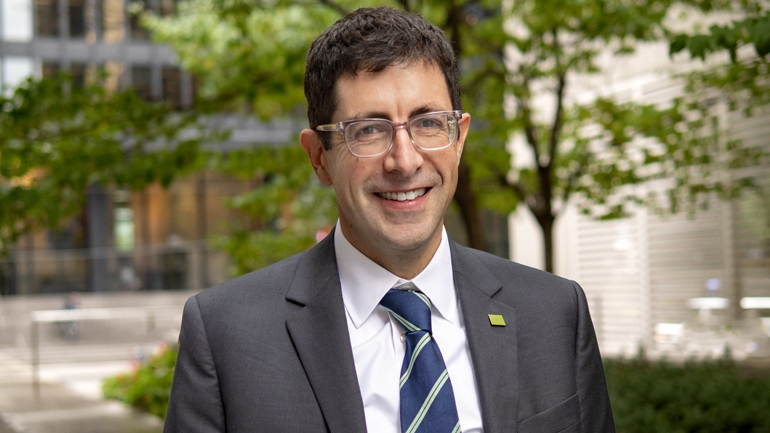By Malcom Lang
Senior Vice President & Chief Financial Officer, TD Securities
I recently spoke with a colleague who has spent most of his working life in the closet, worried that being gay would negatively impact his career. He joined TD five years ago, and it wasn't until he had worked at the bank for two years that he finally felt comfortable coming out to his co-workers.
As colleagues, we can be proud that over time this person was able to trust our culture of inclusivity and felt comfortable being himself at work, but it took him two years to get there. Two years is still a long time, and that could easily have been derailed by one bad experience or homophobic comment overheard in the lunchroom.
We've made great strides creating a culture of acceptance and inclusion at TD, so why did it take this person years to reveal his sexual orientation?
Stories like the one I've just shared is proof that we're not at the end of our journey on greater inclusivity. TD recognizes the importance of creating a culture where everyone can bring their whole self to work – and that's important. But the experience of each of our LGBTQ2+ colleagues is informed at an individual level by the attitude of their immediate manager and colleagues—each of whose actions reflect their own beliefs, culture and upbringing.
In other words, our own unconscious bias.
Unconscious or implicit bias refers to a bias that we are unaware of. It happens automatically, and outside of our control.
This bias happens as our brain creates shortcuts and makes quick judgments and assessments of people and situations. Our ancestors survived because grouping people helped them avoid danger, but this isn't as useful a process in 2018 (and it can also be damaging to companies on a financial level).
Unconscious, or implicit bias is shaped by our background, cultural environment and personal beliefs, and can be completely contradictory to our values. If you have a brain, you're biased. While natural, the process is often a damaging one because our actions as individuals, as part of communities or organizations are influenced by our intended and unintended thoughts.
This may be why too many people from the LGBTQ2+ community still feel they need to live their entire public lives through a filter – hiding aspects of themselves to meet others' expectations, despite visible political or surface-level cultural progress.
This is also one of the reasons that I am a proud ally for the community, and I'm lucky to follow in the footsteps of TD leaders like Ed Clark, Tim Thompson and Carol Osler, who have blazed a trail in support of LGBTQ2+ inclusion.
We need to stay focused on helping people overcome these biases by telling stories and educating our teams, just as other organizations are beginning to do. And we must keep ensuring that we are fostering role models within the community, and building a network of allies if our offices are to feel like a safe space for all employees to be who they really are.
Malcolm Lang is Senior Vice Present and Chief Financial Officer for TD Securities. He is a strong supporter of the LGBTQ2+ community and was recently recognized by Start Proud with the 2018 Leaders To Be Proud Of - Leading Executive Ally Award.
